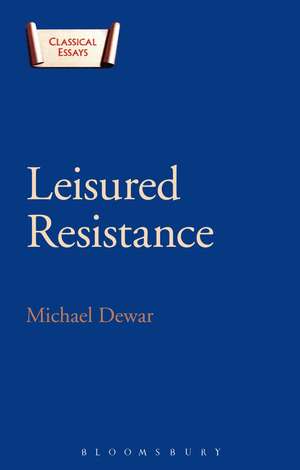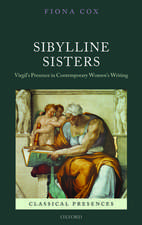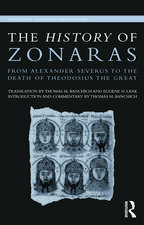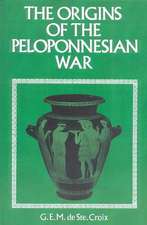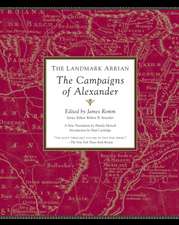Leisured Resistance: Villas, Literature and Politics in the Roman World: Classical Essays
Autor Michael Dewaren Limba Engleză Hardback – 4 dec 2013
| Toate formatele și edițiile | Preț | Express |
|---|---|---|
| Paperback (1) | 253.72 lei 6-8 săpt. | |
| Bloomsbury Publishing – 17 iun 2015 | 253.72 lei 6-8 săpt. | |
| Hardback (1) | 535.90 lei 6-8 săpt. | |
| Bloomsbury Publishing – 4 dec 2013 | 535.90 lei 6-8 săpt. |
Preț: 535.90 lei
Preț vechi: 686.64 lei
-22% Nou
Puncte Express: 804
Preț estimativ în valută:
102.56€ • 106.68$ • 84.67£
102.56€ • 106.68$ • 84.67£
Carte tipărită la comandă
Livrare economică 15-29 aprilie
Preluare comenzi: 021 569.72.76
Specificații
ISBN-13: 9780715634899
ISBN-10: 0715634895
Pagini: 144
Dimensiuni: 138 x 216 x 15 mm
Greutate: 0.3 kg
Ediția:New.
Editura: Bloomsbury Publishing
Colecția Bloomsbury Academic
Seria Classical Essays
Locul publicării:London, United Kingdom
ISBN-10: 0715634895
Pagini: 144
Dimensiuni: 138 x 216 x 15 mm
Greutate: 0.3 kg
Ediția:New.
Editura: Bloomsbury Publishing
Colecția Bloomsbury Academic
Seria Classical Essays
Locul publicării:London, United Kingdom
Caracteristici
Uses a variety of primary sources to produce a chronologically wide-ranging study, from the end of the Roman Republic until the sixth century
Notă biografică
Michael Dewar is Professor of Classics at the University of Toronto, Canada.
Cuprins
AbbreviationsChronologyAcknowledgements1. Cicero and the Generals: Living the Life of Laertes2. Martial, Statius and the Epicureans: Marvellous is the Quietness of the Sea3. Pliny and the Best of Princes: Worn Down by a Thousand Labours4. Juvenal and the Tyrant: Power Equal to the Gods5. Romans, Gauls, and Christians: Mine is No Barbarous LandFurther ReadingNotes
Recenzii
Dewar's deep knowledge and appreciation of the literature he discusses shine throughout this elegantly written book on how a Roman should spend his time.
Descriere
Examines the varied ways in which cultured Roman aristocrats, of very different periods, used their country estates as retreats in which to compose literature and to escape from politics, while others adapted that same tradition of otium ('cultured leisure') to present radical and competing visions of society and literature alike.
